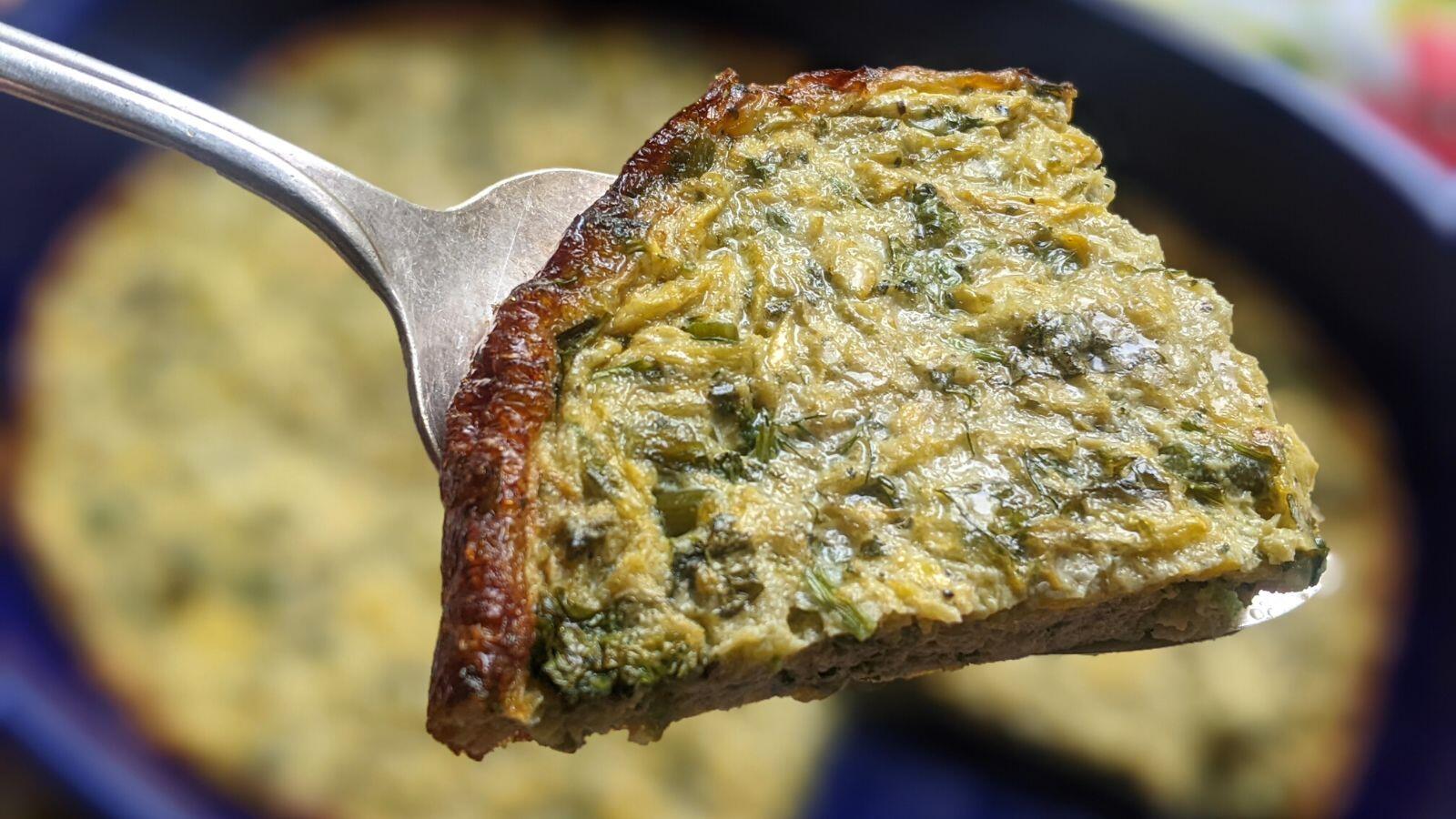As those of us familiar with Sephardic cuisine know, there are often different names and spellings for similar dishes. When it comes to baked casseroles of vegetables, egg and usually cheese, it could be called a kuajado or quajado, sfongato or asfongato, fritada or frittata. Most often, “almodrote” is used by Turkish Jews when the dish is made with zucchini. “Kalabaza” (or calabaza) refers to squash, and is often used to describe different varieties of the vegetable.
Whatever it’s called, some form of this baked dish is nearly always served during Passover in Sephardic homes, and is usually included in the seder meal. It’s especially convenient because it can be made a day or two ahead (more if you want to freeze it) and doesn’t need to take up precious oven space, as it’s often served at room temperature or just barely warmed through. Almodrote and friends are also good for breakfast when you get tired of eating matzah and leftover haroset, or for lunch, dinner or cut into small squares for an appetizer.
This basic recipe can be adapted in many ways. While it calls for feta and parmesan, cheddar or kashkaval (a semi-hard cheese most often made from sheep’s milk that’s popular throughout the Balkans and Mediterranean), the cheese can be left out altogether to make it pareve, or you can use vegan cheese. Regular or gluten-free matzah meal can be used, or bread crumbs when it’s not Passover. You can also make it with other vegetables, including eggplant (berendjena), spinach (espinaka) or leeks (prasa), or add more of the herbs.
Traditionally in the no-waste Sephardic kitchen, the squash would be peeled and the peels made into a different dish. This dish, called kashkarikas, involves cooking the peels in a lemon and olive oil sauce, or with tomatoes and garlic. However, for extra nutrition and flavor, I don’t peel my squash.
Storage notes: Cooked almodrote can be refrigerated for up to five days or frozen, well wrapped, for up to two months. To serve, defrost and heat in a 350°F oven, uncovered, for about 15 minutes, or until just warmed through.
The post Sephardic Zucchini Casserole Recipe appeared first on My Jewish Learning.




